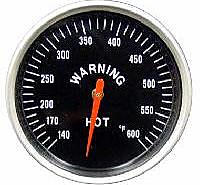December 1, 2013
Thermally Conductive Coatings
What are thermally conductive coatings used for?
-
To help dissipate heat buildup from electrical components, especially to dissipate heat away from plastic components or other elements that could melt
-
To provide cut, galling or abrasion resistance while not impeding heat transfer or heat dissipation
-
In applications where rapid heat transfer is critical (rollers, etc.)
Considerations
-
Thin-Film Coatings: Coatings that supply thermal conductivity are usually less dense, and are applied as thin films. You may have a hard time finding a coating that provides high thermal conductivity at high densities or thicknesses.
-
Electrical Dissipation: Because most thermally conductive coatings contain metals, they are likely to be electrically conductive. Just how electrically conductive they are depends on the polymer base (if any) that the coating has. The upside? These coatings will often dissipate electrical charges effectively, helping stop the buildup of static electricity on the surface of the part.
-
Regular Heat Dissipation: If preventing the buildup of hot spots is particularly important to you, choose your coating carefully. Certain alloys such as aluminum are more likely to give you more even heat dissipation along the entire surface of the coated part.
Coatings to Use
-
Some epoxy coatings can be semi-conductive, depending on how they are blended
-
Polymer-based coatings with aluminum or nickel blended in
-
Thin-film metals such as an aluminum coating, without a polymer base to it
Thermal Barrier Coatings
What are thermal barrier coatings used for?
-
To protect against heat loss, for example in automotive exhaust systems
-
When there is a need to allow higher operating temperatures while protecting alloys from heat exposure, such as with turbine blades in aviation applications
Considerations
-
Thickness: Coatings that supply thermal protection are usually dense and will probably provide more thermal protection at higher thicknesses. You may have a hard time finding a coating that provides high thermal protection at a low density or low thickness.
Coatings to Use
-
Industrial vinyl-based coatings are the most commonly used coatings for thermal barrier properties
-
Halar® ECTFE by Solvay Solexis can be used as an effective thermal barrier. Halar is a coating that can be built up to high thicknesses, and will provide additional thermal protection as more thickness is built up.
-
Many basic powder coatings such as epoxy or urethane will provide some thermal protection when applied correctly. Here again, the level of thermal protection will depend on the thickness level, and also on the blend of the powder coating.
Although we are primarily a coating applications company, at AIC we can blend a custom coating (or work with our suppliers to create a custom coating) that provides the right mix or properties, including the thermal property you’re looking for.
